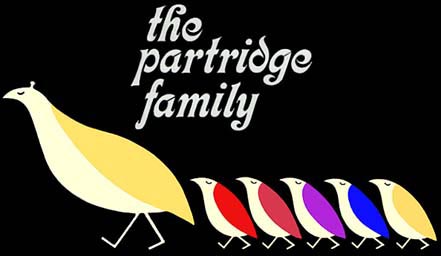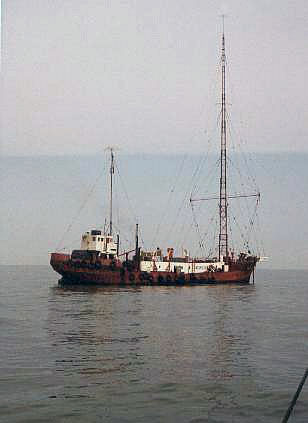
Growing Up Partridge
September 25, 2015
You May Say I’m A Dreamer…
October 9, 2015Today, 30 September, marks the anniversary of BBC Radio 1 in 1967, thus eliminating the offshore floating radio stations that had gained popularity in the UK from 1964 to 1967. In the early 1960s, the state-run BBC wasn’t the place for new artists to get heard, and especially if they weren’t major British acts signed to the big labels. Popular music (read: rock n’ roll) wasn’t broadcast 24 hours a day either, only for a portion of the broadcast day.
So rich entrepreneurs (most likely supported by record labels) circumvented the law of the land by floating radio transmitters on ships outfitted with radio studios and living quarters for DJs and staff off the coast of Europe. Their signals were beamed from international waters, and introduced the UK to a wealth of popular music and new artists, many from the U.S. broadcast from their ‘Pirate’ radio stations. This, of course, confounded the British Government as well as other European countries that were having their audiences siphoned off by the pirate broadcasters. The “European Agreement for the Prevention of Broadcasts transmitted from Stations outside National Territories” was adopted to help curb the activity, but it took countries some time to enforce the agreement.
In September of 1967, the BBC decided it was better to beat the pirates at their own game by launching a popular music channel to rival the programming from the stations afloat, such as “Radio London” and “Radio Caroline.” So they launched Radio 1, and they stole one of Radio Caroline’s and Radio London’s cheery presenters to kick off each morning, Tony Blackburn. Blackburn hosted the Breakfast Show at Radio 1 until 1973, then moved around the schedule and eventually left Radio 1 after 17 years. He moved to BBC’s Radio London and is still a presenter there to the present day. Many other popular pirate radio presenters eventually turned up on Radio 1 as well, helping the government squelch the pirates.
Another little piece of assistance came in the form of The Marine Broadcasting Offenses Act of 1967, closing the loophole of broadcasting from international waters.
The BBC was finally in the rock n’ roll radio business. And they’ve never looked back. Radio 1 is still the mainstream modern popular music channel in the UK. As for the pirates, most eventually shut down, although Radio Caroline continued to reinvent itself time and again through the years, with wide spans of going dark. And pirate radio in the UK today is more land-based than its predecessors afloat. But a significant part of radio’s history in the UK took place off shore from 1964-1967 and that is Boss.






